I tried Olympic weightlifting for the first time – here are three things it's taught me
Being strong simply won't cut it
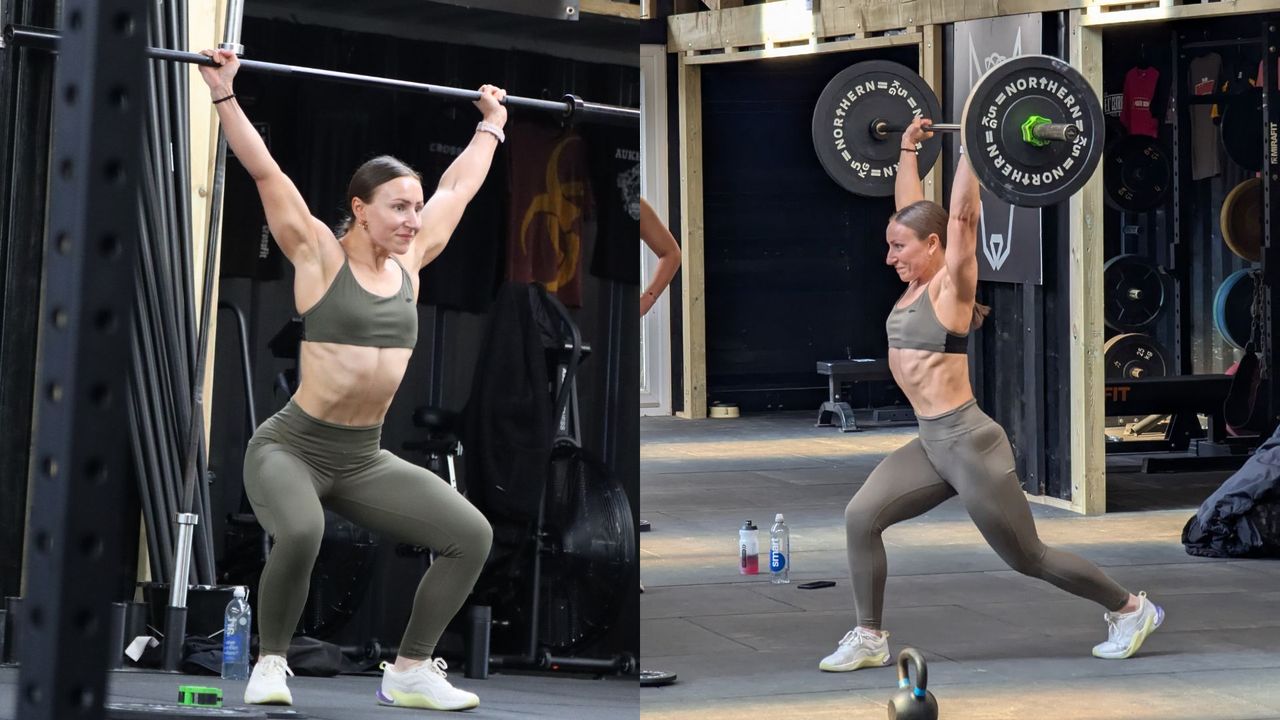

Strength and hypertrophy training may be my main style of training, but as T3’s Active Writer (the title kind of gives it away), I love keeping active, taking on new challenges, and Olympic weightlifting is something I’ve admired for a long time now.
While I think bodybuilders possess remarkable mental resilience and powerlifters have outstanding strength, Olympic lifters nail both. After all, it’s a true test of the mind and body being able to throw near (if not more) than your bodyweight above your head.
Most Saturdays at the gym, I’d find myself constantly watching this 19-year-old girl – not in a weird creepy way – she probably weighed less than 50kg, yet could jerk 60kg above her head, and I was just in awe of her skill. (I eventually had my fan-girl moment and plucked up the courage to tell her how incredibly talented she was.)
So, when I saw an Olympic weightlifting seminar was being held at a local gym, Awakening Strength, by a very competent Olympic weightlifting coach, Serj Maksimov, I thought this was my moment; it was time to step away from my regular strength training and to give Olympic weightlifting a go. How much harder could it really be? (Very.)
For two hours – this guy really had the patience of a saint – Serj helped us master the movement patterns of the two main Olympic lifts: the snatch and the clean and jerk. It was a humbling experience to say the least and let’s just say my four years of strength training didn’t make the experience easier. Here are three things it taught me…
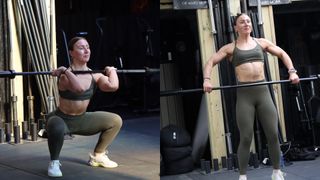
Good mobility is essential
You don’t have to be the most mobile person to bust out a bench press or do a deadlift, but when it comes to Olympic weightlifting, it’s a whole different kettle of fish. Good shoulder mobility and hip mobility are essential in order to be able to hold a barbell easily overhead, fling your elbows underneath it, and sit comfortably in a squat position.
Serj emphasised this at the start of the seminar, saying that if we couldn’t move through a full range of motion without weight, how would we manage with weight? It makes sense. He therefore took us through various mobility drills: cossack squats, holding a kettlebell on our knee whilst squatting, and banded shoulder drills. Basically, if you’re as stiff as a board, you’ll have nowhere to hide, as Olympic weightlifting takes no prisoners.
Sign up to the T3 newsletter for smarter living straight to your inbox
Get all the latest news, reviews, deals and buying guides on gorgeous tech, home and active products from the T3 experts
Strength isn’t the be-all and end-all
That’s not to say strength isn’t important, but people would assume that if you’re super strong, surely Olympic weightlifting will be a doddle? Wrong. Olympic weightlifting ultimately comes down to technique – how quickly can you drop underneath the barbell in a snatch or rack your elbows underneath the barbell in a clean?
As someone who does heavy compound lifts four times a week, and has been for the past four years, it was an incredibly humbling experience. I may be able to front squat 85kg, but snatching an empty barbell was hard. One time I almost toppled backwards. It’s one-hundred percent a skill-specific sport, and if you don’t nail the movement mechanics, it’s a one-way ticket to injury.
Of course, strength is important, but it goes hand in hand with good technique. It certainly doesn’t one-up it, that’s for sure. So, if you do a lot of strength training and decide to give it a go, leave your ego at the door.
A post shared by Bryony Firth-Bernard 🤍 (@bryonyfb)
A photo posted by on
Patience and perseverance are key
We all know that ‘practice makes perfect’, but it certainly rings true with Olympic weightlifting. Once we’d done our mobility and had been taken through the two lifts, it was just practice, practice, practice. It gets tiring (definitely make sure you eat enough beforehand) and, at times, was very frustrating, particularly when my body just couldn’t get into the positions I needed it to.
When things finally did start to click – not just for me, but for the whole class – it was so rewarding, but you’ll be up against hurdles before this happens. Then, once I thought I’d nailed something, I’d add a little bit more weight to the bar, and it’d highlight more things I needed to work on. I definitely had a love-hate relationship with the barbell by the end of the session. Perseverance and patience are therefore essential. Plus, a supportive teacher and class make a massive difference too.
Would I do it again?
Despite the lesson being tough, I’m one hundred per cent signing up for the next seminar. If you’re immediately thinking ‘I could never do that’, don’t be so hard on yourself. One thing I loved about the seminar was that there was a mixture of both men and women, a variety of ages, and body types. Olympic lifting isn’t a ‘one size fits all sport’, it can be for everyone, as long as you’re willing to put the work in.

Bryony’s T3’s official ‘gym-bunny’ and Active Staff Writer, covering all things fitness. She recently completed her Level 3 PT qualification with the PFCA to bring a deeper understanding of training techniques, fitness trends, and wellness advice to her writing. In her spare time, you will find her in her natural habitat - the gym - where her style of training is a hybrid of bodybuilding and powerlifting. Bryony loves writing about accessible workouts, nutrition and testing innovative fitness products that help you reach your fitness goals and take your training to the next level.
You must confirm your public display name before commenting
Please logout and then login again, you will then be prompted to enter your display name.
-
 This PS5 Pro game proves the best part of next-gen isn't what you expected
This PS5 Pro game proves the best part of next-gen isn't what you expectedRay-traced reflections might be a mirage
By Max Freeman-Mills Published
-
 Oil pulling is going viral on TikTok for stopping morning breath – but does it actually work?
Oil pulling is going viral on TikTok for stopping morning breath – but does it actually work?4 hacks that prevent morning breath, according to a sleep expert
By Bethan Girdler-Maslen Published
-
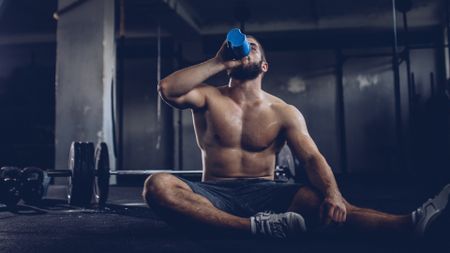 When’s the best time to take creatine?
When’s the best time to take creatine?The science-backed supplement is a must for building strength and muscle, but is there an optimal time to take it?
By Bryony Firth-Bernard Published
-
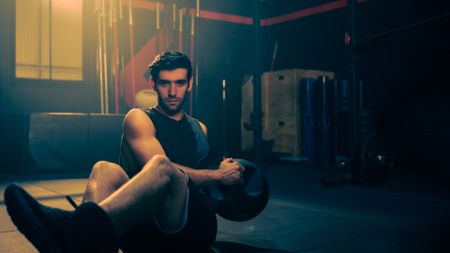 Three overrated core exercises and what you should do instead
Three overrated core exercises and what you should do insteadA fitness expert says these exercises aren’t all they’re cracked up to be
By Bryony Firth-Bernard Published
-
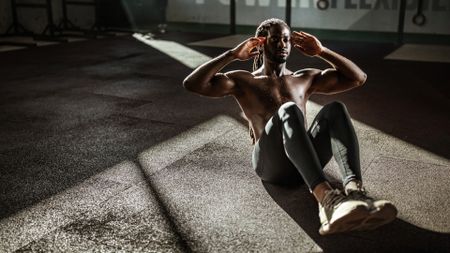 An exercise scientist ranks every ab exercise – and the worst one may surprise you
An exercise scientist ranks every ab exercise – and the worst one may surprise youFYI it’s not crunches or sit-ups
By Bryony Firth-Bernard Published
-
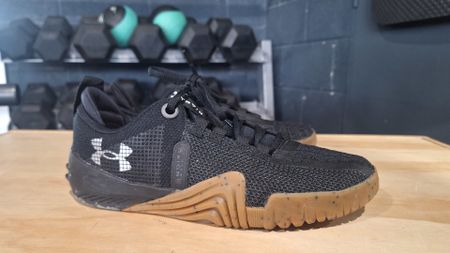 I didn't think Under Armour could improve its top-tier workout shoes – I was wrong
I didn't think Under Armour could improve its top-tier workout shoes – I was wrongThe TriBase Reign 6 has had a complete overhaul, with a flatter sole, improved flexibility and a brand-new look
By Bryony Firth-Bernard Published
-
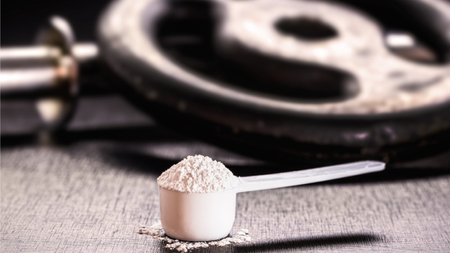 Creatine powder vs pills: which is better for muscle gains?
Creatine powder vs pills: which is better for muscle gains?A sports nutritionist gives the low-down on this popular supplement
By Bryony Firth-Bernard Published
-
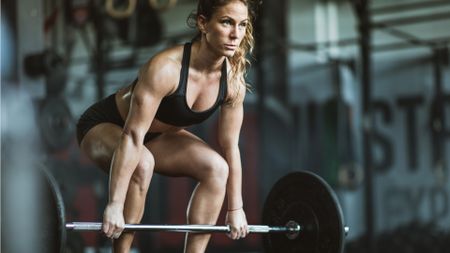 Why the cube method is your best chance to improve strength and avoid muscle-building plateaus
Why the cube method is your best chance to improve strength and avoid muscle-building plateausStruggling to build muscle? This could help
By Lucy Miller Published
-
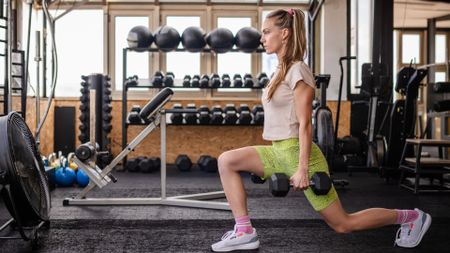 A fitness expert says these are the three best longevity exercises to help you live a more active, longer life
A fitness expert says these are the three best longevity exercises to help you live a more active, longer lifeBy Bryony Firth-Bernard Published
-
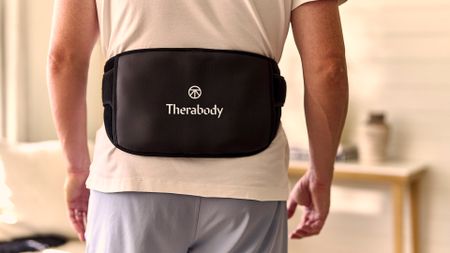 I tried Therabody’s new gadget for my lower back and now my whole family loves it
I tried Therabody’s new gadget for my lower back and now my whole family loves itIf you suffer from back pain, then you need to try this
By Bryony Firth-Bernard Published